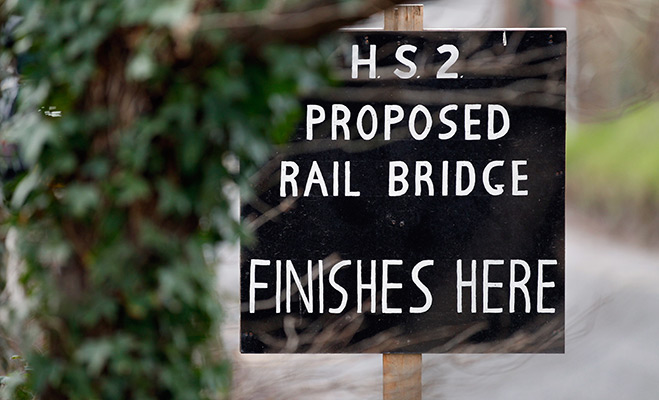Phase 2 of UK’s high speed rail unveiled
British government reveals details of second stage of proposed new high speed rail network, hoping it will power economic growth

For a country that pioneered rail transport across the world, the UK’s creaking network has been in desperate need of an upgrade for decades. Soaring ticket prices, unreliable services and monopolies over key lines has led to many in the country bemoaning what is a vital part of transport infrastructure.
While many have called for further investment in improving the existing network, others within the industry and politicians in Westminster have more ambitious proposals, in particular the high speed rail systems that have proved so successful in other countries, most notably across the Channel in France.
This morning, the coalition government announced further plans for the proposed High Speed 2 rail network that it hopes will bridge the north-south economic divide between London and regions north of Birmingham. The second phase, announced by Transport Secretary Patrick McLoughlin, will extend the London to Birmingham line north towards key cities like Manchester, Sheffield and Leeds.
Although existing lines serve the north of England from the capital, the government believes that a new high speed link will unlock economic growth in the north by nearly halving the time it takes to travel there. It will also simplify and speed up access to the continent, as well as boosting capacity to the entire network.
McLoughlin told reporters: “It’s not just about journey times, it is also about capacity. We are finding the railways are overcrowded. We’ve seen massive growth in rail passenger numbers, so this is taking HS2 so it serves the north. This is the first railways to be built north of London for 120 years.”
The government also hopes that improving the rail infrastructure will reduce peoples need for short-haul air travel, significantly cutting carbon emissions, while Chancellor George Osborne also highlighted the impact such a large-scale infrastructure project will have on jobs and the economy. Osborne said: “It’s also about the new stations, the prosperity that’s going to come, [and] the jobs that are going to be created around this infrastructure.”
While there has been cross-party support for a new high speed line, the plans have been met with stiff resistance from environmental and conservation campaigners.













